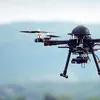Union Budget’s emphasis on drone technology will spur adoption, say industry players
Drone technology sector in India gets a boost in confidence, expects better adoption across sectors of the technology
The Union Budget 2022 had multiple mentions of leveraging drone technology across sectors, including the use of Kisan Drones for farming and digitisation of land records, and Drone Shakti to encourage drone pilot certification.
Players in the Indian Unmanned Aerial Vehicle (UAV) or drone space believe that these measures will encourage adoption of the technology across sectors, apart from serving as a measure of confidence in the technology.
“The government had announced an allocation of Rs 120 crore as part of the Production Linked Incentive (PLI) scheme for manufacture of drones and drone components in India in September 2021. Apart from this, in January this year the government had announced subsidies for use of drones for precision farming,” Smit Shah, president of industry body Drone Federation of India (DFI) told YourStory.
DFI represents the interests of Indian UAV manufacturers, service providers, training institutes and pilots.
He added, “This coupled with the Drone Shakti initiative for training address all relevant sectors including manufacturing, services and training.”
“Startups will be promoted to facilitate ‘Drone Shakti’ through varied applications and for Drone-As-A-Service (DrAAS). In select ITIs (Industrial Training Institutes) in all states, required courses for skilling will be started,” said the finance minister Nirmala Sitharaman in her budget speech on Tuesday.
The Union Ministry of Agriculture and Farmers Welfare in January had also issued guidelines to make drone technology affordable to stakeholders including Farmer Producer Organisations (FPOs), farm machinery training and testing institutes, ICAR institutes, Krishi Vigyan Kendras and state agriculture universities. As part of the scheme, FPOs will be eligible to receive a grant of up to 75 percent of the cost of the agriculture drone, and so on.
These measures, coupled with recognition of Drone-as-a-Service (DrAAS) and training will lead to increase in adoption across sectors and increase the number of per day drone flights from the current average of between 10,000 to 20,000 per day, says Mughilan Thiru Ramasamy, Co-Founder and CEO of . Skylark provides enterprises with drone analytics and offers manufacturers of drones with regulatory airspace compliance.
“We also need a central software for drone technology, similar to what NPCI did for the UPI moment in payments technology. An open stack central software will provide data on how many drones are flying in a given city, who are the pilots flying these, etc. This will open up the job market for trained drone pilots, as well as provide public information on drones flying in a specific area,” said Mughilan.
He added that an open stack for drone technology will also benefit players which cater to specific industries such as mining, land records, etc.
Industry players expect other relevant announcements to come in during the year to promote the adoption of drone technology across sectors, including outlining clear allocations for the same.
Edited by Affirunisa Kankudti








